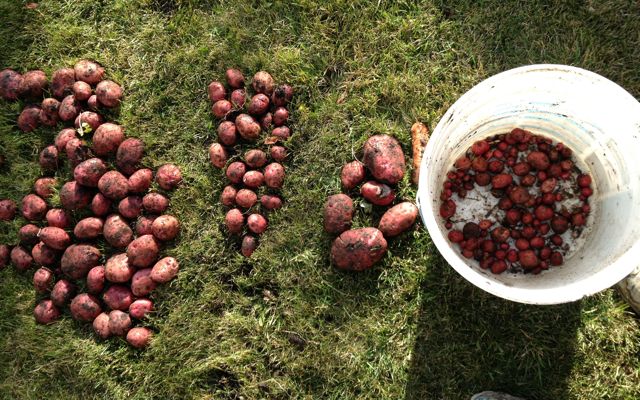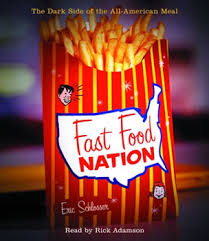 Turkey Day is fast approaching. Many people get “the flu” around holidays. In truths these flus are often cases of food poisoning from unsafe food handling practices. Adopt these 13 habits to avoid being sick on Thanksgiving and everyday.
Turkey Day is fast approaching. Many people get “the flu” around holidays. In truths these flus are often cases of food poisoning from unsafe food handling practices. Adopt these 13 habits to avoid being sick on Thanksgiving and everyday.
There has been some talk of governments mandating the irradiation of food to prevent food-borne illnesses. We should all cry out against this ill-advised policy mainly because irradiation not only kills pathogens it also destroys vital nutrients. Our food supply is already nutritionally compromised from being grown in nutrient depleted soils, sprayed with a myriad of chemicals, and being bred for aesthetics and the ability to travel long distances.
In an effort to be healthy I try to choose as many fresh foods as possible. Irradiation will destroy the last life that’s left and it simply isn’t necessary. Despite occasional concerns, Canada has a safe food supply, much safer than almost anywhere else in the world, but food handling naturally comes with risks because what is food for us is also food for other creatures.
There is much the consumer can do to minimize risks of food spoilage, which leads to food-born illness. Fortunately, one of my high school jobs was in a hospital kitchen. They took safe food handling very seriously. I received training on everything from personal hygiene to storage and safe preparation of food. I take these things for granted now but I realize not everyone had the benefit of this training. Here are some ways we can minimize our risks.
1) Buy fresh food and be aware of the length of the shelf-life. For example, don’t buy ground beef Monday to eat on Saturday; it should be eaten within a couple days.
2) Use plastic bags to wrap meat so juices don’t contaminate other foods in transit.
3) Schedule your errands so groceries are last. That way cold items are less likely to begin brewing bacteria. I throw my cooler into my trunk for meats and dairy products if I know I can’t go straight home.
4) Put groceries away immediately. Now is a good time to remove any science experiments from the back of the fridge, throw away leftovers that are more than a day or two old (depending on the item) and wipe up any fridge-dried spills and debris.
5) Wash produce thoroughly, even if it says on the package that is has been washed. Many products are packed in the field by workers, who don’t have access to proper bathroom and washing facilities.
6) Always store meat at the proper temperatures. Marinate meats in the fridge rather than on the kitchen counter. Use meats within one or two days or freeze them immediately for later consumption.
7) While cooking and preparing, wash your hands frequently to interrupt germ highways.
8) Be aware of cross-contamination scenarios. Don’t use the same knife to cut vegetables after slicing a chicken breast. Cutting boards are germ playgrounds and should be sanitized between food groups. I prefer glass or plastic boards that can be washed in the dishwasher.
9) Cook foods to safe temperatures. It varies with the product so find out and use thermometers to check before serving. Serve immediately or hold at prescribed temperatures.
10) Leftovers should be packaged (air tight to prevent fridge tastes) and refrigerated immediately. Granted, nobody wants to move from the table after turkey, but there will be a lot fewer Christmas “flu”s from the mandatory midnight turkey bun if the turkey flies into the fridge after the last bite is swallowed. The same goes for the stuffing as soon as its presence is no longer required at the table and for goodness sake, don’t leave it inside the bird!
11) Kitchen surfaces and sinks should be cleaned with soap (not antibacterial) and dried to remove germs. Otherwise your kitchen is nothing more than a giant Petri dish.
12) Change your dishcloth regularly; I wash mine daily. Don’t use a sponge as there are many nooks and crannies for germs to hide. I often toss my brushes, cleaning pads, and sink stoppers into the dishwasher to be sanitized, especially if the machine isn’t quite full.
13) Finally, practice good personal hygiene. Cooking is physical and in many ways, intimate. It involves touching, massaging and tasting. And if you’re not clean yourself, your food will be contaminated.
Practice these easy steps to ensure your meals won’t make your friends and family sick.

